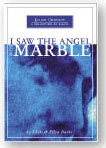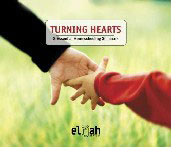|
Winter is a Time to Strengthen Family Ties
Read past issues of the
e-journal HERE>>
Sign up below to have the e-journals sent directly to your inbox.
by Ellyn Davis
(In our e-journal about Papa's Boyhood Winters, I shared stories of my father's childhood on the farm and how winter was a time for reflecting over the past year, thinking through what you did right or could have done better. It was a time of planning, of marshalling resources to be used in the next season of growth. It was a time of sharpening tools and fixing machinery, of undertaking special projects. And…winter was a time of having fun. This is the third in a series of articles about how winter could be a special time for home schoolers.)
Since winter is usually a time when families spend more time indoors together, it is an ideal time to strengthen family ties.
What do people remember about their childhood? What builds a family? What holds families together? Many psychologists and social workers will tell you that it is family rituals.
Psychologists tell us that rituals help us keep track of where we come from and who we are. This is important for all family members, but especially important for children. Children form their identities from learning what to expect from their environments and the routine reassurances and shared experiences found in rituals. Rituals offer a sense of predictability and order to life. All of these things contribute to a child’s sense of stability in the world, which leads to a sense of well-being.
A ritual is any repeated, shared activity that has meaning and is rewarding to everyone involved.
According to Meg Cox, expert on rituals and author of The Heart Of A Family: Searching America for Traditions that Fulfill Us, ritual is anything, big or small, that families perform together deliberately, providing there is repetition or some dramatic flourish that elevates the activity above the ordinary grind. She adds, “Rituals are like a magical power; the more we understand them the more their power will enrich our lives.”
What are the ingredients of healthy rituals that strengthen family ties?
First, each person must feel special. Too often we adults come up with ideas that we like, but that don’t make our children feel special.
Second, there are two different kinds of rituals—"everyday" repetitive rituals that happen on an ongoing basis, and special rituals that celebrate certain events like birthdays or Christmas. Repetitive rituals must be something that can easily be incorporated into everyday life.
For example, our family tried to have a repetitive ritual of eating at least one meal together every day. During that meal each person around the table would share about their day. We also tried to read a book aloud together each weekday. We had a weekly ritual of a “family meeting” at the beginning of each week where we went over everyone’s schedule for the week and decided on special family times we would have together.
But we had specialcelebratory rituals, like for birthdays and Christmas On each child’s birthday, we would seat him in a special chair and tell his “story,” which included the child’s accomplishments, special activities, and times when God shone through in his life. Then we would pray for him for the coming year.
Christmas was always my favorite day of the year when I was growing up, and not just because of the presents, but also because of how special my parents made it. We got up, got dressed, ate a wonderful Christmas breakfast and were then allowed to open our stockings, but we weren’t allowed to go into the room where the Christmas tree and all the presents were yet. First we would be lined up one by one, from youngest to oldest, in front of the French doors leading into the living room and, with a flourish, my father would open the door.
We would run toward the tree shrieking with delight, but knew better than to just grab our presents. We all sat in a circle near the tree and Papa would play Santa Claus and hand out the presents one by one. He tried to allot enough time between each present for us to watch it being opened, but usually toward the end everyone was so impatient that he just handed them out as fast as he could.
Although it seems like this ritual would have made us impatient, we loved it because it caused our anticipation to reach a fever pitch. Plus, it made Christmas last all morning.
If you are unfamiliar with family rituals, and want to start your own, here are some ideas:
- Eat together. If you’re like many families today, you're busy in the late afternoon going to lessons or sports practice, so it's hard to have family dinner together seven nights a week. Try for breakfast together or snacks in the evening if it’s too hard to have regularly scheduled mealtimes together. Relaxed moments of sharing food and conversation allow for bonding and reconnection.
- Read aloud together.Some of our closest family times were spend listening to a good book. We would either get audio books or read real books aloud. GO HERE>> for lists of good children’s books.
- Recognition night. A fun way to celebrate your child’s achievements is to serve a special meal of that child’s favorite foods. You can even have a special, decorative plate reserved for these honoring occasions.
- One on one time. It’s easy to overlook one-on-one time with our children, particularly if we have large families. Family ties can be improved through more personal attention. Set aside a few minutes each day, or an hour once a week, for one-on-one time with your children. Susannah Wesley, wife of John Wesley, had 17 children and she made it a practice to spend time alone with each child each week.
- Family night. Designate one night a week as sacred solely for family members to connect, interact and communicate while having wholesome fun. Play board games, rent a movie with popcorn and candy, play charades or card games, or have a cooking night where family members plan the meal and help cook it as a team. Or go out bowling or roller skating. If you stay at home, make sure the telephone is turned off.
- Family field trips. Picnics, hikes, a trip to a farm, a trip to the airport—anything that is an outing for the kids that they really enjoy.
- Volunteer day. Help children cultivate altruism and to think of others less fortunate. Try as a family to do some community service like volunteer at a nursing home or in a soup kitchen, or collect food for a local food pantry. Another thing our family did was audition as volunteer actors in plays at our community theater. One year everyone but me acted in Oliver together.
Top Resources for Strengthening Family Relationships
GO HERE>> for lists of good children’s books.
The Seven Habits of Highly Effective People by Stephen Covey. Covey’s ideas are so widely circulated that if you don’t read his book, you’ll be at a disadvantage when people start talking about concepts from the book like “win-win” and “synergy.” But that’s not the real reason to read his book. The real reason is that it is one of the absolute greatest distillations of the concepts that it takes to move toward success and effectiveness in every area of life.
Margin by Dr. Richard Swenson. Picture living a life where you didn’t feel overextended. You had the time you needed to spend on things that were important to you; the emotional reserves to develop deep, meaningful relationships; the financial reserves to spend on what would enhance your life and your relationships; and the physical health to be able to do what you love to do. Defining margin as the space that exists between people and their personal limits, Swenson tells us how we’ve squeezed that space out of our lives so that most of us live chronically overextended lives wishing for more time, more energy, more money, and deeper relationships. This book is one of the best books we’ve ever read and it clearly explains how we let margin slip out of our lives, what it does to us as people to live without it, and how we can regain it.
The Overload Syndrome by Dr. Richard Swenson. This book is written like a “prescription” for overloaded lives. Through humor and a great deal of common sense, Swenson shows how you can carve out margin in four key areas of your life: emotional, physical, time and financial. By becoming Goal-Focused and God-Focused, you can unplug and eliminate a large portion of the stress in your life. This book can truly change your life if you follow its “prescriptions” for moving from a life of overload to a life like God intended it to be.
The Book of New Family Traditions: How to Create Great Rituals for Holidays & Everydays. Meg Cox guides you through the simple steps that help families fully cherish all of those special moments and milestones, help heal the wounds of trauma and loss, and strengthen that indomitable spirit of identity within a family. She spent more than three years interviewing diverse families all over the country and compiling a collection of inventive new traditions. In this book you'll find fresh ways of commemorating established holidays like Thanksgiving and July 4, Passover and Easter, Christmas, Hanukkah, and Kwanzaa. You will also find original observances for birthdays, bedtime and dinnertime, not to mention a whole compendium of unexpected traditions: sports rituals, pet rituals, homework rituals, vacation rituals and family meetings, among others.
What is a Family. I love anything written by Edith Schaeffer, and this is my favorite book of hers. I reread it every few years and it makes me cry every time.Each chapter decribes the family in a different way. For example, there is a chapter called, "A museum of memories," which explains the importance of making happy memories for your children and some ideas on how to do it. Another chapter is called, "A perpetual relay of truth." The chapter, "A shelter in a time of storm," makes one feel honored to be caring for a sick or needy family member. She has other chapters defining the family in other ways, including a place of education, an economic unit, etc.
The Seven Habits of Highly Effective People by Stephen Covey. Covey’s ideas are so widely circulated that if you don’t read his book, you’ll be at a disadvantage when people start talking about concepts from the book like “win-win” and “synergy.” But that’s not the real reason to read his book. The real reason is that it is one of the absolute greatest distillations of the concepts that it takes to move toward success and effectiveness in every area of life, including relationships.
The Seven Habits of Highly Effective Families by Stephen Covey. Covey defines success in relationships as "a beautiful family culture" and encourages every parent to do some soul searching to become aware as to what really is priority in life. Then, he suggests we put "first things first." Most of us really want to have family come first, but doing that is often easier said than done. In this book, Covey clearly points out the essentials...such as establishing effective communication lines through family meetings and one-on-one talks with the kids. One of the most transforming things in this book is his description of how to create a family mission statement. This becomes a guiding principle of family life and was invaluable to our familyl as the children were growing up.
How to Really Love Your Child. In this extrordinary book, Dr Ross Campbell helps parents manifest love toward their children in all situations of child-rearing through the teen years. Many parents do not know how to express affection in ways that make a chid feel loved. This book details practical demonstrations of that are meaningful to children.
How to Really Love Your Teenager is specifically addressed to parents of teens. Dr. Ross Campbell believes that parents experience their greatest difficulties at this stage because they are unable to relate to the moodiness and self-identity issues that teens go through. So parents often harbor misconceptions and face disappointment in their relationships with their teens. This book offers ideas to help you communicate unconditional love, handle teenage anger . . . as well as your own, deal with adolescent depression and help your teenager grow spiritually and intellectually.
The Five Love Languages. Unhappiness in a relationship often has a root cause: we speak different love languages. Each of us has a "love language" of certain actions and words that when others use them it makes us feel loved. Do you feel most loved when those you love spend quality time with you, give you gifts, speak words of affirmation, perform acts of service, or when they touch you affectionately? This is a very thought-provoking and helpful book because it has given us greater understanding of how to show we care in a way that is most meaningful to the other person.
The Five Love Languages of Children and The Five Love Languages of Teenagers focus on finding the form of love most meaningful to each of your children and how to express love in ways that they can truly appreciate and receive it.
The Blessing. In the Bible, the parents' blessing was especially powerful, often defining the course of a child's life. This book discusses how a parent's words can shape identity for good or evil, and how what we speak over our children can hlep them become who God means them to be. It also shares the heartache a lack of parental blessing can bring, and how we can confer a blessing upon our children.

Be sure to sign up for our ejournal!
Sign up below.
CLICK HERE FOR THE PRODUCTS WE CURRENTLY OFFER
Webpages about the importance of reading great books and booklists for children of all ages
Webpages about choosing teaching materials
Webpages about charting a course through high school
Any article appearing on this website may be copied or forwarded electronically provided that proper credit is given and that the article is not substantively modified.
No article may appear in whole or in part in a publication sold for profit or as part of any commercial endeavor without the written consent of Home School Marketplace. Any reprint must include an acknowledgement of where it came from and the sentence "Sign up for the Home School Marketplace newsletter at www.homeschoolmarketplace.com."
© Copyright 2008. Home School Marketplace, 1053 Eldridge Loop, Crossville, TN 38571. |








